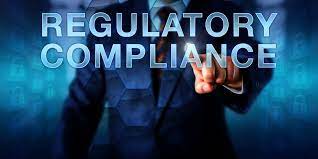Are you ready to learn how to implement electronic communications capture and supervision in your firm for better compliance and prevention of regulatory violations? Is messaging compliance giving your compliance function headaches? Welcome to a special 5 part blog post series on messaging compliance in a shifting regulatory landscape, sponsored by Global Relay. In this Part 1, I visited with Chip Jones on the current US regulatory landscape for messaging apps.
The importance of capturing and supervising electronic communications cannot be overstated for financial services compliance professionals. By properly managing these communications, you are taking a proactive approach to preventing potential regulatory violations and protecting both your personal and professional reputation. Through implementing a robust communication compliance policy, training your employees, and establishing a monitoring process, you can ensure a secure and compliant environment in which your firm can thrive.
Here are the key steps:
- Understand electronic communication regulations;
- Choose a reliable communication capture tool;
- Implement a clear communication compliance policy;
- Train employees on communication best practices; and
- Establish a monitoring and supervision process.
1. Understand electronic communication regulations.
In the ever-evolving world of financial services, electronic communication regulations play a critical role in ensuring transparency, accountability, and compliance. Familiarizing yourself with these regulations is the first essential step in implementing effective Electronic Communications Capture and Supervision (ECCS) processes at your firm. By understanding the governing rules and industry standards, financial service professionals can avoid potential pitfalls and unwarranted regulatory scrutiny.
In light of the SEC’s enforcement actions against large investment banks, it becomes apparent how crucial it is to stay informed of these regulations and maintain proactive supervision. The use of electronic communication tools, enables firms to monitor their internal communications closely and prevent regulatory violations. One effective method is to actively flag specific phrases and keywords that indicate off-channel communications, which in turn draws attention to and helps monitor those potential risks.
2. Choose a reliable communication capture tool.
Implementing electronic communication capture and supervision within a financial firm is essential for ensuring compliance with regulatory requirements and maintaining a transparent and accountable work environment. When choosing a reliable communication capture tool, it is crucial to consider its effectiveness in monitoring and archiving all forms of electronic communication within the organization. This includes emails, instant messages, social media interactions, and any other relevant communication channels. A dependable tool should be able to capture and retain all electronic communications while additionally providing the option to search, analyze, and review the retained data for potential regulatory violations or areas of concern.
One way their solution helps is by tracking phrases and words that may suggest an attempt to shift discussions to off-channel platforms. This raises a red flag, which allows compliance professionals to identify potential violations and take appropriate action. The Securities and Exchange Commission (SEC) is increasingly focusing on individuals within firms who breach regulatory guidelines. As a result, the SEC may impose stronger consequences such as termination or monetary actions to deter similar violations from occurring. The implementation of a reliable communication capture tool is essential for a firm’s overall compliance efforts, as it helps promote transparency and instills accountability within the organization.
Ensuring that electronic communications are monitored and retained reduces the likelihood of rogue representatives pushing unsuitable investments or engaging in other illegal activities. Furthermore, the use of reliable tools can provide financial firms with a solid foundation for communication compliance supervision, which regulators are increasingly emphasizing. As compliance professionals are likely to face more individual-level enforcement actions, firms must have the right tools and processes in place to maintain compliance and mitigate potential risks.
3. Implement and train employees on a clear communication compliance policy.
Implementing a clear communication compliance policy is an essential step in ensuring your firm’s electronic communications are appropriately supervised and within regulatory requirements. By establishing a well-structured policy, compliance professionals can effectively monitor and mitigate potential risks, which may result in regulatory violations and penalties. A comprehensive compliance policy should address the monitoring of on- and off-channel communications, identify patterns of misconduct, and establish procedures to escalate and resolve potential issues.
A robust policy should educate employees on the importance of proper communication compliance and the dangers of using personal devices for business communications. The regulators, including the SEC, are closely monitoring and enforcing communication compliance rules, increasing the potential for individual-level actions, such as termination or monetary penalties, against those violating such requirements. Understanding and implementing a communication compliance policy is crucial for financial services compliance professionals to mitigate the risk of regulatory violations.
By proactively monitoring electronic communications and capturing data, firms can equip their compliance teams with invaluable information to identify and address potential issues early. Moreover, implementing a robust compliance policy can help encourage employees to maintain transparency in their communications and understand the importance of using appropriate channels for business purposes. In doing so, organizations can effectively minimize regulatory risks, protect their reputation, and ensure the highest standard of integrity in their business operations.
In today’s fast-paced financial services industry, ensuring compliance with electronic communication regulations is more vital than ever. By following the steps outlined in this blog post, compliance professionals like you can significantly reduce the risk of regulatory violations and protect your firm’s reputation. Remember, a well-thought-out communication compliance policy, coupled with employee training and a reliable communication capture tool, can provide the foundation for a robust compliance program. Don’t hesitate to take action – invest in the right tools and processes to safeguard your firm’s future.
Join us tomorrow when we ask the provocative question: Is Regulation stifling innovation?








